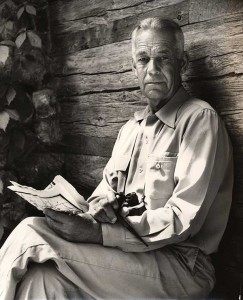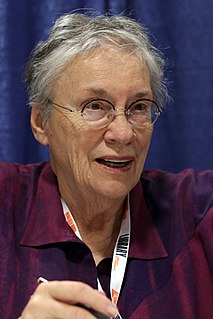A Quote by Michael Ondaatje
A man in a desert can hold absence in his cupped hands, knowing it is something that feeds him more than water.
Related Quotes
Man's history is woven into waterways, for not only did he live beside them, but he used them as highways for hunting, exploration, and trade. Water assured his welfare, its absence meant migration or death, its constancy nourished his spirit. A mountain, a desert, or a great forest might serve his need of strength, but water reflects his inner needs.
It wasn't only that you didn't see him anymore, meet him anymore. You saw his absence and encountered it as something tangible. His not being there was like the sharply outlined emptiness of a photo with a figure cut out precisely with scissors and now the missing figure is more important, more dominant than all others.
I didn't have a chance to buy you anything," she said, then held both closed hands toward him. Uncurled her fingers. In each cupped palm a brown egg. He took them. They were cold. He thought it a tender, wonderful thing to do. She had given him something, the eggs, after all, only a symbol, but they had come from her hands as a gift. To him. It didn't matter that he'd bought them himself at the supermarket the day before. He imagined she understood him, that she had to love him to know that it was the outstreched hands, the giving, that mattered.
Man had in the beginning no power of analysis or synthesis approaching that of the spider, or even of the honey-bee; he had acute sensibility to the higher forces. Fire taught him secrets that no other animal could learn; running water probably taught him even more, especially in his first lessons of mechanics; the animals helped to educate him, trusting themselves into his hands merely for the sake of their food, and carrying his burdens or supplying his clothing; the grasses and grains were academies of study.
When I see the blind and wretched state of men, when I survey the whole universe in its deadness, and man left to himself with no light, as though lost in this corner of the universe without knowing who put him there, what he has to do, or what will become of him when he dies, incapable of knowing anything, I am moved to terror, like a man transported in his sleep to some terrifying desert island, who wakes up quite lost, with no means of escape. Then I marvel that so wretched a state does not drive people to despair.
All of man's ills are due to his lack of knowing God within him. The perfection of God's universe is founded upon its perfection of Balance. All of man's ills are caused by toxic poisons generated in his body through unbalance affecting his power of control over the functions of his electric body. Man, as an extension of God, is creator of his own electric body. He is master of his electric body to the extent of his knowing the Light of God in him. ... God says to man: »What I do, ye shall do«, but man is unbelieving for long ages.
If idioms are more to be born than to be selected, then the things of life and human nature that a man has grown up with--(not that one man's experience is better than another's, but that it is 'his.')--may give him something better in his substance and manner than an over-long period of superimposed idiomatic education which quite likely doesn't fit his constitution. My father used to say, 'If a poet knows more about a horse than he does about heaven, he might better stick to the horse, and some day the horse may carry him into heaven'
Botha swimmer and a drowned man are in the water; the latter is borne by the water and controlled by it, while the swimmer is borne along by his own power and of his own volition. Every movement made by the drowned man - indeed, every act and word that issue from him - comes from the water, not from him... The saints are like this. They have died before death.





































